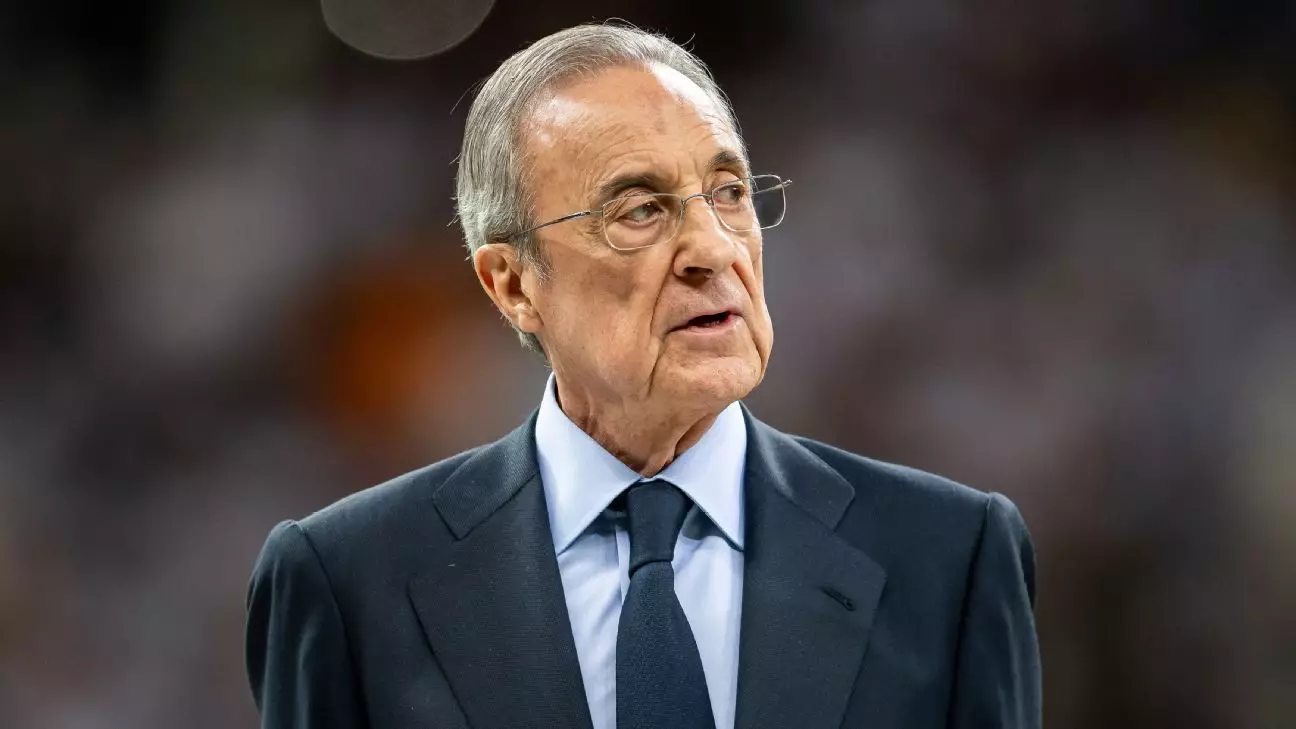Real Madrid has found itself at the crossroads of tradition and modern financial exigencies, as articulated by its president, Florentino Pérez, during the club’s recent annual assembly. In a detailed address; the football magnate has taken the bold step of proposing a “corporate reorganisation” aimed at fortifying the club’s financial position. This pivot reflects broader concerns regarding the governance of football in Spain and beyond, thus demanding a careful analysis.
Pérez’s announcement stems from a complex dispute with LaLiga concerning an investment deal with CVC, which controversially allocated approximately €2 billion to other clubs in exchange for future broadcasting income. This scenario raises significant concerns over financial equity within the sport, suggesting a fundamental imbalance detrimental to traditional clubs like Real Madrid that are member-owned. Pérez underscored a sentiment of urgency: “We’re working on defending ourselves on attacks on our financial wealth.” The emphasis on defending the club’s assets resonates with a growing frustration voiced among members, as corporate influences increasingly invade the sanctity of traditional club structures.
As one of the select few Spanish clubs—alongside Barcelona, Athletic Club, and Osasuna—remaining member-owned, Real Madrid’s situation is unique. The president highlighted the necessity for a new ownership model that not only preserves the club’s independence but ensures that economic decisions serve its members rather than external interests. The discord related to LaLiga illustrates a broader trend in football where financial power and governance are subjects of critical scrutiny.
While Pérez has not elaborated on the specifics of the proposed corporate reorganisation, his commitment to clarify the proposals at an upcoming assembly reflects a transparent approach to governance, albeit amidst fears regarding implications for member ownership. “I’ll keep you informed, we’ll have an assembly to explain it clearly,” Pérez assured, acknowledging the need for dialogue and engagement with stakeholders.
Furthermore, his remarks illuminate the challenge that clubs face in negotiating their financial futures with governing bodies like LaLiga. Pérez’s rhetoric aimed not only at preserving Madrid’s financial legacy but also at protecting the club’s integrity amidst a shifting landscape, where clubs risk losing their unique identities under pressures from commercial entities.
Criticism of Football Governance
In addition to financial discussions, Pérez’s address also consumed a significant portion critiquing the current systems governing football, especially the UEFA and the Ballon d’Or voting process. He expressed disappointment that players like Vinícius Júnior were overlooked in award considerations, leaving fans and stakeholders questioning the criteria used by journalists for nominations. This scrutiny reflects broader discontent regarding how achievements are recognized in football, and Pérez firmly advocates for an independent evaluation system void of biases.
Moreover, Pérez raised significant concerns about the evolution of European football, drawing a stark analogy between football’s trajectory and that of Blockbuster, a once-dominant entity that failed to adapt in a rapidly changing market. His call for a transformative approach resonates with the idea that football must embrace innovative technologies and business models to retain its relevance and lure younger audiences.
Financial Matters and Community Engagement
Pérez also addressed the financial implications of postponing concerts at the new Bernabéu Stadium, emphasizing that revenue from such events constituted only a small fraction of the club’s overall budget. This acknowledgment illustrates a critical aspect of modern sports management: balancing profitability with community engagement and the perceptions of local residents.
As the club navigates these financial challenges and prioritizes local community integration, it underscores the need for a multi-faceted approach that respects both economic imperatives and societal responsibilities.
Florentino Pérez’s ambitious call for a corporate reorganisation at Real Madrid encapsulates the complexities faced by traditional clubs in an evolving football landscape. As he aims to solidify the protections of financial assets while advocating for an independent governance structure, the implications of these transformations merit close observation. Ultimately, the club’s path forward may serve as a bellwether for other institutions caught in the weave of commercialism and community governance, thereby charting a course that protects the essence of what it means to belong to a hallowed football club.

